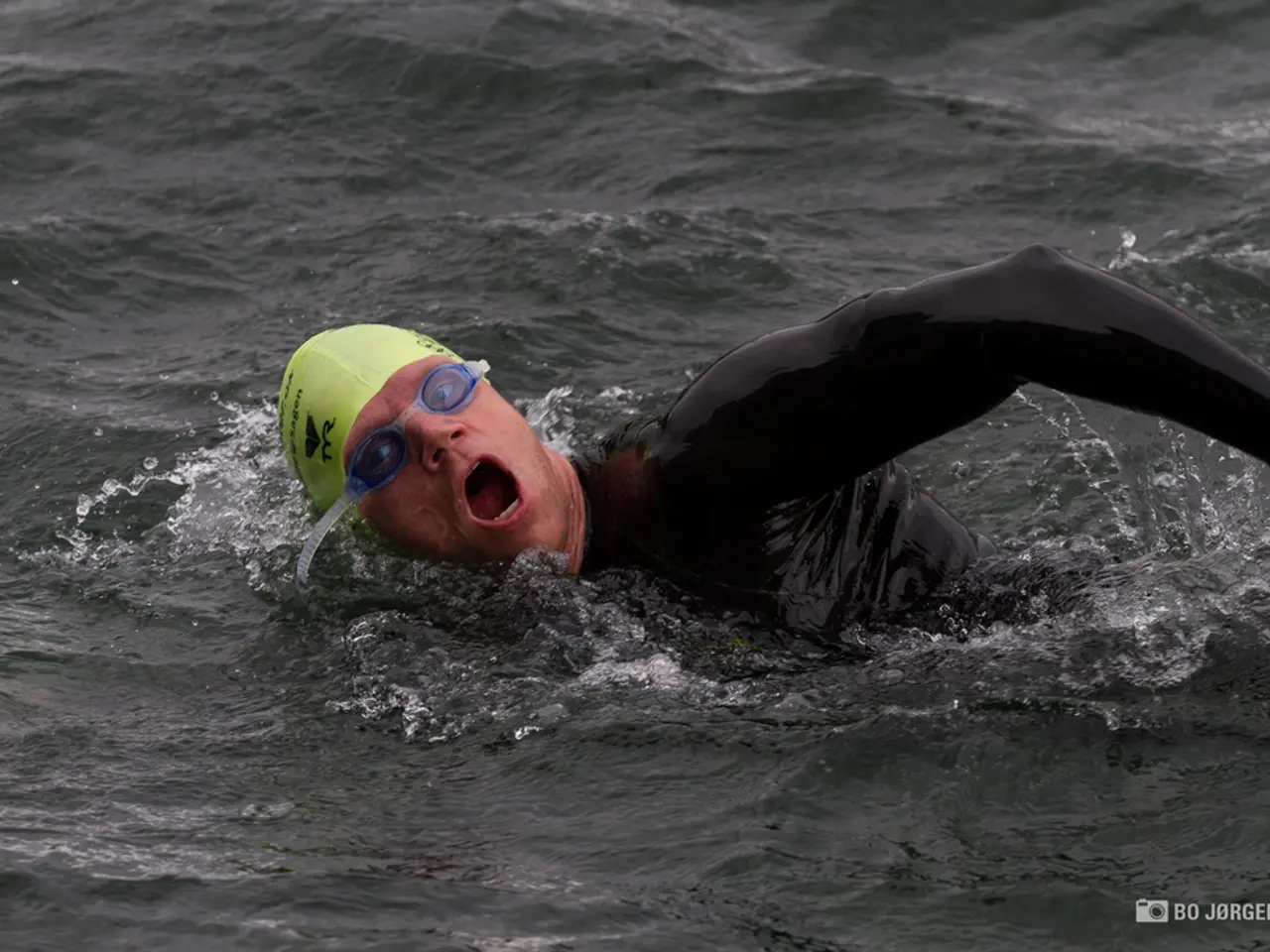Is it safe to go swimming with newly pierced ears?
Swimming with ear piercings can be a tricky business, especially for new cartilage piercings. Here's a comprehensive guide to help you navigate this watery terrain safely.
First and foremost, it's crucial to choose the right jewelry materials for swimming. Opt for surgical steel, titanium, or high-quality gold for swimming. These materials are less likely to react with chlorine or salt water.
During the healing period, it's best to avoid swimming altogether. Cartilage piercings like helix or other ear cartilage types typically need 6 months or more to fully heal. Exposure to water, especially pools, lakes, rivers, hot tubs, or oceans, carries a risk of infection due to bacteria and chemicals like chlorine.
If swimming is unavoidable before complete healing, cover the piercing with a waterproof bandage that seals tightly. However, it's important to note that waterproof bandages aren't recommended for fresh piercings because they trap moisture against healing tissue.
Once healed, professional-grade jewelry materials are less affected by water exposure. But, it's still essential to rinse piercings immediately with clean fresh water after swimming to remove chlorine, salt, bacteria, or other contaminants.
When it comes to salt water, it's a dangerous myth that it sterilizes wounds. Ocean salt water contains numerous harmful bacteria, including flesh-eating species that cause severe infections.
To determine if your piercing is ready for swimming, look for signs such as no discharge or crusty buildup for at least two weeks, jewelry moving freely without pain or resistance, no tenderness when the area is touched, the piercing looking and feeling like other healed body parts, following aftercare instructions perfectly for the entire recommended healing period, and confirmation of healing by your professional piercer.
It's also important to choose swimming locations carefully. Prefer well-maintained pools with proper chemical balance over natural water bodies for the first swimming experiences after piercing healing. Research water quality at your intended swimming location before swimming.
Avoid high-impact water activities initially, such as diving, water slides, or rough ocean waves. Dry the area thoroughly but gently using clean paper towels or allowing air drying to prevent moisture buildup that could encourage bacterial growth around the piercing.
In the event that water gets in your fresh piercing, rinse immediately with sterile saline solution, avoid hydrogen peroxide or alcohol, gently pat dry with a clean paper towel, monitor closely for infection signs, contact your piercer immediately for guidance, and don't remove jewelry unless advised by a professional.
Ensure your tetanus vaccination is current before swimming in natural water bodies. Medical professionals emphasize that piercing infections can be life-threatening when bacteria enter the bloodstream, particularly in cartilage infections where blood supply is limited and antibiotics have difficulty reaching infected tissue effectively.
Quality piercing shops provide detailed aftercare instructions that specifically address swimming restrictions, and reputable piercers will refuse to provide "shortcuts" or compromises that could endanger client health and safety.
For healed piercings, silicone ear plugs can be effective by preventing water from entering the ear canal and contacting jewelry, but they should never be used during the healing period. Wax ear plugs aren't recommended because they can break apart and leave residue around piercings that's difficult to clean and may harbor bacteria that could cause infections.
Lastly, avoid using waterproof makeup on fresh piercings. Makeup around fresh piercings introduces bacteria and chemicals that interfere with healing, while waterproof formulas are particularly difficult to remove and may require harsh cleansers that damage healing tissue.
By following these guidelines, you can enjoy swimming safely with your ear piercings. Happy swimming!
In adherence to proper health-and-wellness practices, it's advisable to avoid engaging in skin-care routines such as applying waterproof makeup on fresh ear piercings due to the potential risk of bacterial infection.
When dealing with chronic diseases like medical-conditions affecting the skin, it's essential to consult with a dermatologist or healthcare provider before swimming to ensure that water exposure won't exacerbate existing skin problems or complicate the healing process.




